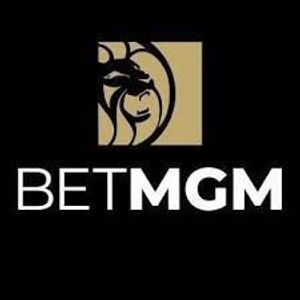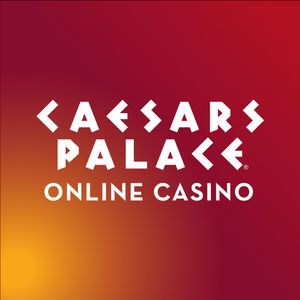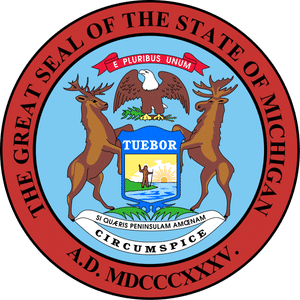
Michigan Online Gambling Guide to The Best MI Online Casinos
Stay informed about the latest options for online casino gambling in Michigan. Here, you'll find the most recent updates on Michigan's online casino offerings.
Michigan State Guide
Each online casino operating in Michigan is overseen and regulated by the Michigan Gaming Control Board. This board ensures that all licensed casinos provide a secure and trustworthy gambling environment.
First let's look into which forms of gambling that are legal in Michigan:
✅ Online Casinos
✅ Land-Based Casinos
✅ Online Sports Betting
✅ Land-Based Sports Betting
✅ Daily Fantasy Sports
✅ Horse Betting
✅ Charitable Gambling
✅ Online Poker
✅ Online Bingo & Land-Based Bingo
✅ Online Lottery & Land-Based Lottery
❌ Social and Sweepstake Casinos
Top Casinos
- Great Sign-up Bonus
- +500 Casino Games
- Big Progressive Jackpots
$25 Freeplay®️ + $1000 Deposit Bonus
Call 1-800-GAMBLER Must be 21+. MI, NJ, PA and WV only. New Customers Only (If applicable). Please Gamble Responsibly. Visit BetMGM.com for Terms and Conditions. All promotions are subject to qualification and eligibility requirements. Rewards issued as non-withdrawable site credit/Bonus Bets unless otherwise provided in the applicable terms. Rewards subject to expiry.
- Great Welcome Bonus
- Long Experience from Casino Gambling
- Great Gambling Experience
$10 Sign-up + $1000 Deposit Bonus
MA: Call 1-800-327-5050 or visit gamblinghelplinema.org
NY: Call 877-8-HOPENY or text HOPENY (467369)
- One of the Largest Gambling Sites in the US
- No Deposit Bonus
- Casino, Sportsbook & DFS
500 Bonus Spins & 24 Hour Lossback up to $1,000 Casino Credits
FAQ
-
Is online gambling legal in Michigan?
-
Do I have to be in Michigan state to gamble online?
-
Can I open a betting account in Michigan out of state?
-
Who is allowed to gamble and play online casinos in Michigan?
-
Can I play online casino games in Michigan for free?
-
Is it safe to gamble online in Michigan?
-
When did online gambling become legal in Michigan?
-
What is the best online casino for Michigan?
There is a wide range of online casinos in Michigan to choose from. Michigan was the 5th state to legalize online gambling and with healthy gambling laws, there is a big interest for online casinos to enter Michigan.
Currently, around 20 Michigan online casino sites offer all the most popular casino games available such as video poker machines, slot machines, and table games such as live poker, blackjack, craps, roulette, and house-banked poker.
Listed below, you will find our top-recommended Michigan online casinos:
BetMGM Casino
If you are into casinos we assume you have already heard about BetMGM Online Casino. BetMGM has taken the online gambling experience (sports betting, casino, and poker) to a new level in the US. There is no state where online casino or sports betting is legal where BetMGM will not make it into the top 3 list of the best online casinos and/or sportsbooks.
If you are not already registered with this industry leader, we recommend you register and claim your free play bonus upon signing up.
Caesars Casino
Caesars Online Casino is one of our top-rated online Michigan casinos for several reasons. The welcome offer is tremendous, and their Caesars Rewards loyalty program is probably one of the best on the market. The range of slot games available will leave no casino gambler unhappy.
All in all Caesars Casino is as close to perfect as they come. Register your account today and lock in your bonus with the promo code below.
Online Casinos in Michigan Are Legal and Secure
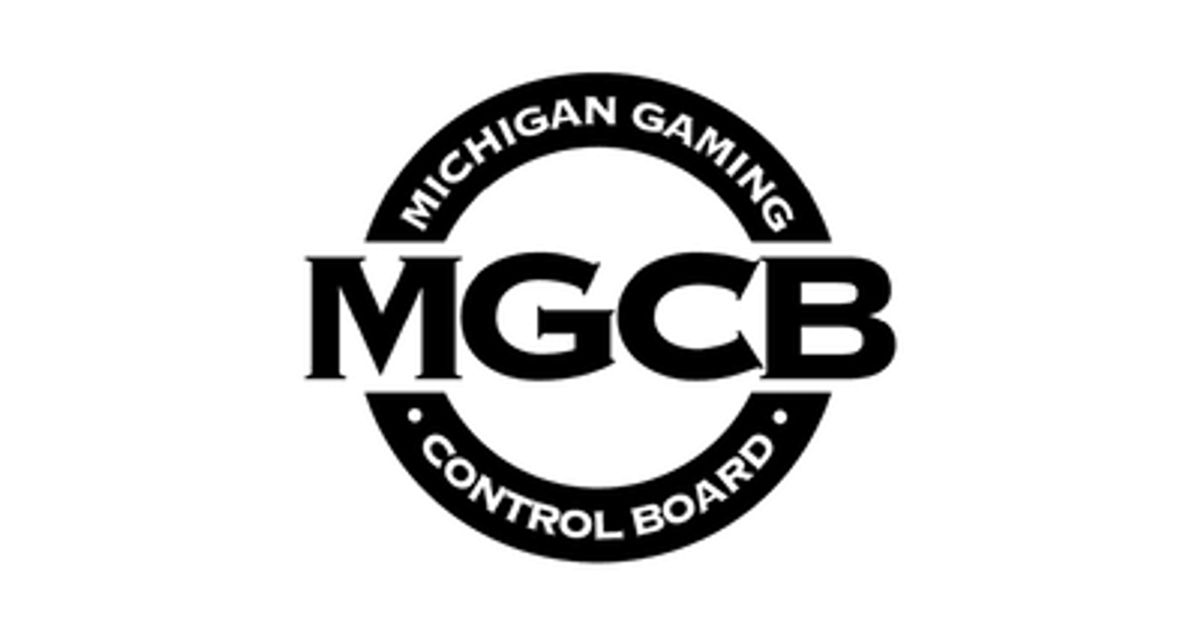
In Michigan, online casinos operate under the oversight of the Michigan Gaming Control Board (MGCB), ensuring that all casinos comply with strict regulations and security standards. Here's what you need to know about the security and legalization aspects of Michigan's online casino industry:
✅ Regulatory Approval
The Michigan Gaming Control Board (MGCB) oversees the licensing and regulation of online casinos in the state, ensuring that operators adhere to legal requirements and industry standards. By obtaining approval from the MGCB, online casinos demonstrate their commitment to maintaining a safe and fair gaming environment for players.
✅ Legalization Process
Online casino gaming was legalized in Michigan on December 20, 2019, following the passage of legislation that allowed licensed tribal and commercial casinos to offer internet gambling services. The legalization of online casinos was a significant milestone for Michigan's gaming industry, providing players with access to a regulated and secure online gaming experience.
✅ Security Measures
Online casinos in Michigan prioritize the security of players' personal and financial information by employing robust encryption technology and stringent security protocols. Leading platforms utilize SSL encryption to protect data transmission and implement identity verification procedures to prevent fraud and underage gambling.
✅ Compliance with Regulations
Licensed online casinos in Michigan must comply with regulations established by the MGCB, covering various aspects of gaming operations, including security measures, responsible gambling practices, and financial transactions. By adhering to regulatory requirements, online casinos demonstrate their commitment to player safety and integrity.

For players seeking convenient and engaging gaming experiences on the go, several Michigan casino apps stand out for their quality and offerings. Here is a comprehensive comparison of Michigan casino apps to consider:
| Online Casino App Name | iOS App | iPhone Compatibility | App Store Average Rating | Android App? | Google Play Average Rating |
| Barstool Sportsbook & Casino | Yes | Requires iOS 14.0 or later | 👍🏽 4.8 / 5 | Yes | 3.2 / 5 |
| BetMGM Online Casino | Yes | Requires iOS 11.0 or later | 👍🏽 4.7 / 5 | Yes | 4.2 / 5 |
| BetRivers Casino Sportsbook MI | Yes | Requires iOS 13.0 or later | 4.0 / 5 | Yes | 3.2 / 5 |
| Caesars Casino & Sportsbook | Yes | Requires iOS 11.0 or later | 👍🏽 4.6 / 5 | Yes | 👍🏽 4.5 / 5 |
| DraftKings Sportsbook & Casino | Yes | Requires iOS 10.0 or later | 👍🏽 4.8 / 5 | Yes | 👍🏽 4.6 / 5 |
| FanDuel Casino - Real Money | Yes | Requires iOS 11.0 or later | 👍🏽 4.8 / 5 | Yes | 👍🏽 4.6 / 5 |
| FireKeepers Casino | Yes | Requires iOS 13.0 or later | 👎 2.0 / 5 | Yes | 4.0 / 5 |
| Four Winds Online Casino MI | Yes | Requires iOS 14.1 or later | 2.9 / 5 | Yes | 3.7 / 5 |
| Golden Nugget MI Online Casino | Yes | Requires iOS 13.0 or later | 👎 2.1 / 5 | Yes | 3.0 / 5 |
| Play Gun Lake Casino & Sports | Yes | Requires iOS 11.0 or later | 3.2 / 5 | Yes | 3.6 / 5 |
| PointsBet Online Casino | Yes | Requires iOS 11.0 or later | 👎 1.8 / 5 | Yes | 3.0 / 5 |
| Stars Casino by Pokerstars | Yes | Requires iOS 11.0 or later | 4.3 / 5 | Yes | 3.8 / 5 |
| WynnBET MI Casino & Sportsbook | Yes | Requires iOS 13.0 or later | 👍🏽 4.5 / 5 | Yes | 4.2 / 5 |
Installing iOS & Android Casino Apps in Michigan
All licensed Michigan Online Casinos offer their services through a casino or betting app, available on iOS or Android devices. The process of downloading a casino app is pretty intuitive and straightforward. To quickly begin using your chosen casino app, simply follow these three steps:
- Select the casino you wish to register with and click the provided link on this page.
- Complete the registration process.
- Once registered, log in to your account from your mobile device, where download links for the casino app will be readily available.
Recommended MI Casino Apps
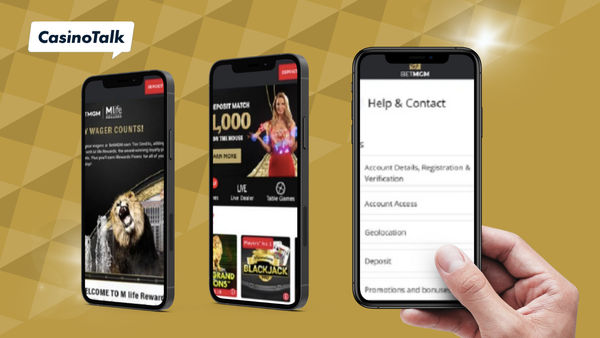
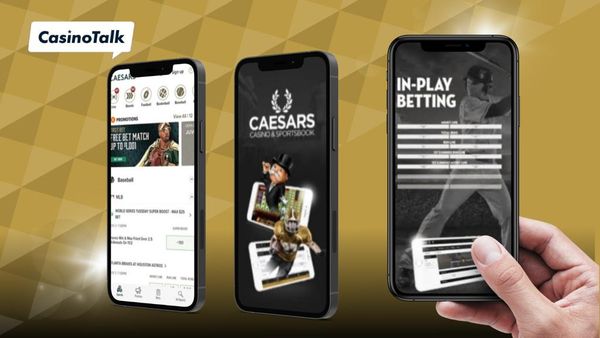

Who Can Play Online Casino in Michigan?
In Michigan, online casino gaming is accessible to individuals who meet the following criteria:
- Age Requirement: Players must be at least 21 years old to participate in online casino gambling activities in Michigan. Verification of age is required during the registration process.
- Physical Presence: To legally gamble at online casinos in Michigan, individuals must be physically located within the state's borders at the time of placing bets. This requirement is enforced through geolocation technology used by online gambling operators.
- Residency: While residency in Michigan is not a prerequisite for playing at online casinos in the state, players must be physically present within Michigan's borders to engage in real-money wagering. Visitors from neighboring states can also participate by crossing the border into Michigan.
- Accessibility: Players can access online casino platforms and download casino apps from anywhere, regardless of their location. However, actual gameplay for real-money wagers is restricted to individuals physically present within Michigan.
For example, someone residing in Chicago, Illinois, where online sports betting is regulated but online casino gaming is not, can easily travel approximately 30 minutes by car to Michigan's border, gamble at an online casino within the state, and then return home.
There are many online casinos to choose between and with more present online casinos the better the casino promo offers in Michigan.
There are a few generous no-deposit bonuses, some attractive deposit bonuses, and some cashback bonuses that should not be ignored. Let's take a look at how all these types of bonuses work.
No Deposit Bonuses
A no deposit bonus or sign-up bonus is a bonus that is awarded once the sign-up is complete. Just as the bonus name indicates it does not require you to make a deposit to trigger the bonus offer.
- Bonus Example: Register and get $25 in free money on sign-up.
| Casino | No Deposit Bonus Offer | Promo Code |
 | $25 Freeplay®️ + 100% up to $1500 Deposit Bonus | SQORECASINO |
 | $20 on sign-up + 100% up to $1000 Deposit Bonus | SQOREGATA |
 | $10 Sign-up Bonus + Up to $1000 Deposit Bonus | TALKLAUNCH |
Gambling problem? Call 1-800-GAMBLER (MI/NJ/PA/WV) or visit www.1800gambler.net (WV). 21+. Physically present in MI/NJ/PA/WV only. Eligibility restrictions apply. Void in ONT.
Deposit Bonuses
Contrary to the no deposit bonus the deposit bonus requires you to make a deposit. These bonuses are usually structured so that the first deposit amount is matched and triggers a bonus that is X % of the first deposit.
- Bonus Example: 100% up to $1000 on your first deposit.
Cashback Bonuses
A cashback bonus gives you a bonus amount to gamble for a limited period. Just like a deposit bonus, you need to make a deposit but the deposited amount is "insured" up to a preset amount and if lost you will get the money paid back.
Usually in the form of bonus money that needs to be wagered X times before it can be withdrawn.
- Bonus Example: Up to $1000 bonus paid back if you lose for the first 24h
Helpful tips when evaluating a casino bonus
Here are three important aspects to consider when evaluating a casino bonus.
✅ Check the bonus percentage match: The higher the % the better as your deposited money will get a higher bonus match.
✅ Check the playthrough requirements: Going for a bigger bonus amount usually comes with tougher wagering requirements. Sometimes some types of games do not count toward clearing the bonus
✅ Check the time you have to clear the bonus: Ensure you have the hours needed for gambling to manage the time restrictions.
Best Casino Bonuses in Michigan
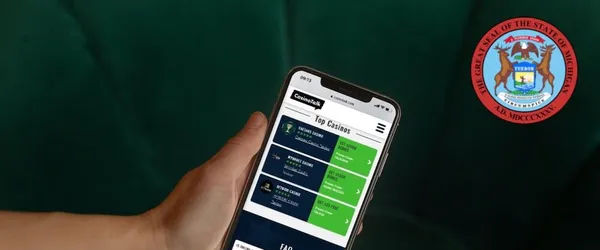


Step by step guide on how to register a casino account in Michigan
You should now be ready to know where you want to register your account. Let's go through the details and how you get your account funded.
Pick any of the casinos listed on this site and copy the promo code connected to the casino offer.
Each registration process is unique but they more or less request the same type of info. Provide the requested information and your account will be validated.
This is where you need to take decisions of your own.
- Make sure you deposit enough to trigger a good value from the casino bonus you have selected.
- Make sure you use a banking option that is fast and easy to move money in and out of the casino
- We recommend PayPal, or any other e-wallet, Credit, or Debit card. Our experience has shown that these are the smoothest banking options to use whenever gambling at a MI online casino.
After creating an account and funding it you will typically receive your casino bonus instantly. You are now ready to start playing games!
Michigan's online casinos feature a wide selection of popular games, with each offering multiple versions to accommodate various preferences. Here's an overview of the common game types you'll encounter:
Slots
Slot games have been a staple of online casino gaming for years, drawing players with their thrilling gameplay and lucrative rewards. From classic three-reel slots to progressive jackpots, the variety of slot games available offers something for every player preference. With the potential to win substantial sums of money with just one spin, coupled with well-crafted thematic experiences, online slots continue to captivate players worldwide.
Table Games
Traditional table games like blackjack, roulette, baccarat, and craps are available in digital formats, offering realistic gameplay with customizable features. Players can enjoy different variants of these timeless classics, each with its own set of rules and betting options.
Video Poker
Video poker combines elements of both slots and poker, providing a fast-paced and engaging gaming experience. Players aim to build the best poker hand possible using the cards dealt to them, with various versions such as Jacks or Better, Deuces Wild, and Joker Poker available.
Live Dealer Games
For those seeking an authentic casino atmosphere, many Michigan online casinos offer live dealer games. These games feature real-time streaming of professional dealers hosting table games like blackjack, roulette, and baccarat, allowing players to interact with both the dealer and other participants.
Progressive Jackpots
Michigan online casinos often feature progressive jackpot slots, where the prize pool increases with each bet placed until a lucky player hits the jackpot. These games offer the potential for life-changing wins and add an extra layer of excitement to the gaming experience.
Casino Games Guides

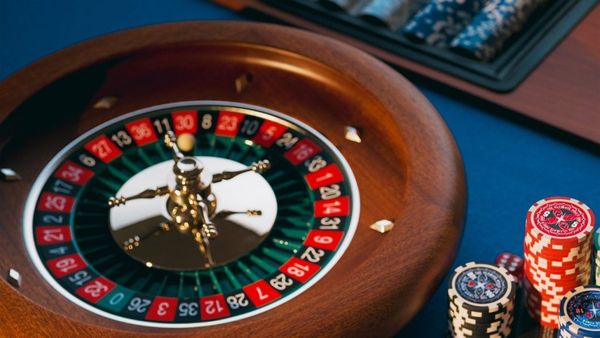
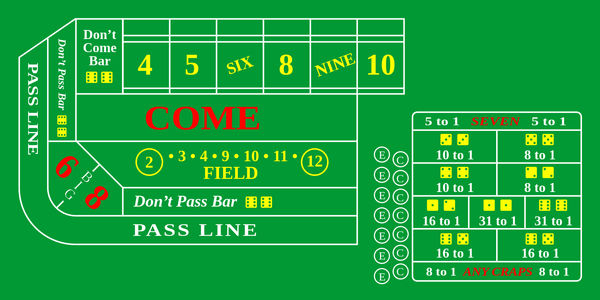
When it comes to banking at Michigan online casinos, players have access to a variety of convenient and secure options for deposits and withdrawals. These banking methods ensure smooth transactions, allowing players to fund their accounts and cash out their winnings with ease.
However, it's important to note that not all online casinos support every payment method. Consequently, it's advisable to consult the specific casino to ascertain the available payment options accepted by the casino.
Deposit Methods:
- Credit and Debit Cards: Most Michigan online casinos accept major credit and debit cards such as Visa, Mastercard, and American Express for instant deposits.
- E-Wallets: Popular e-wallet services like PayPal, Skrill, and Neteller are widely supported, offering quick and secure transactions.
- Bank Transfers: Players can link their bank accounts directly to the online casino platform for seamless transfers.
- Prepaid Cards: Some online casinos in Michigan accept prepaid cards like Paysafecard, providing an extra layer of security and privacy.
Withdrawal Methods:
- E-Wallets: Withdrawals to e-wallet accounts are typically processed swiftly, with funds available for immediate use.
- Bank Transfers: Players can withdraw their winnings directly to their bank accounts, although processing times may vary.
- Check by Mail: Some Michigan online casinos offer the option to receive winnings by check, which is sent via mail to the player's registered address.
Security and Safety
Michigan online casinos prioritize the security of their players' financial information. They employ advanced encryption technology to safeguard transactions and ensure that sensitive data remains protected at all times.
Transaction Fees and Limits:
While most Michigan online casinos do not charge fees for deposits, some banking methods may incur transaction fees for withdrawals. Additionally, there are minimum and maximum limits imposed on both deposits and withdrawals, which vary depending on the chosen payment method.
Payment Guides
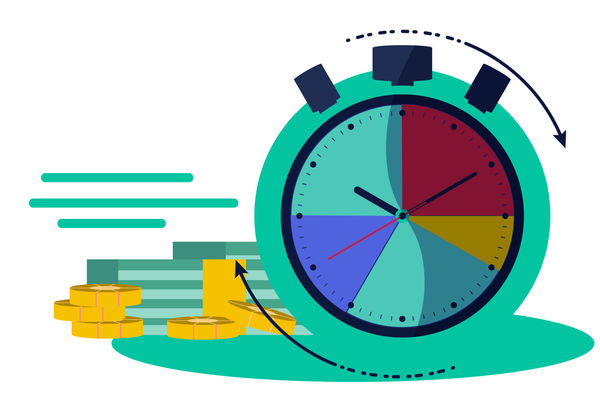


Currently, Michigan hosts 16 online casinos. Below is a comprehensive list of all MI online casinos along with their corresponding land-based casino partners.
| Online Casino | Land-Based Casino Partner |
| BetMGM Casino MI | MGM Grand Detroit |
| Caesars Palace Casino MI | Turtle Creek Casino |
| DraftKings Casino MI | Bay Mills Resort & Casino |
| FanDuel Casino MI | MotorCity Casino Hotel |
| BetRivers Casino MI | Little River Casino Resort |
| Caesars Sportsbook & Casino MI | Grand Traverse Resort & Casinos |
| WynnBET Casino MI | Kewadin Casinos |
| Fanatics Casino MI | TBD |
| PokerStars Casino MI | Odawa Casino Resort |
| Hollywood Casino MI | Greektown Casino Hotel |
| Sports Illustrated Casino MI | Island Resort & Casino |
| FireKeepers Casino MI | FireKeepers Casino |
| Four Winds Casino MI | Four Winds Casinos |
| Golden Nugget Casino MI | Ojibwa Casino |
| PlayEagle Casino MI | Soaring Eagle Casino & Resort |
| PlayGunLake Casino MI | Gun Lake Casino |
Michigan is home to a thriving casino industry, boasting a mix of commercial and tribal casinos spread across the state. These land-based casinos offer a diverse array of gaming options, including slots, table games, poker rooms, and more.
With the legalization of online gambling in Michigan, many land-based casinos have formed partnerships with online gaming operators to launch online casino platforms. These partnerships leverage the expertise of both parties to provide players with a comprehensive and enjoyable online gaming experience.
Some of the prominent land-based casinos and online casino partners in the state include:
| Casinos | Owner | Online Casino Partner | Tech Partner |
| Bay Mills Resort & Casino | Bay Mills Indian Community | DraftKings Casino | N/A |
| FireKeepers Casino Hotel | Nottawaseppi Huron Band of the Potawatomi Indians | FireKeepers Casino | Scientific Games |
| Four Winds New Buffalo | Pokagon Band of Potawatomi Indians | Four Winds Casino | Kambi |
| Four Winds Hartford | Pokagon Band of Potawatomi Indians | Four Winds Casino | Kambi |
| Four Winds Dowagiac | Pokagon Band of Potawatomi Indians | Four Winds Casino | Kambi |
| Greektown Casino-Hotel | Barstool Casino | Kambi | |
| Gun Lake Casino | PlayGunLake via Parx Casino | N/A | |
| Island Resort & Casino | Hannahville Indian Community | BetAmerica | GAN/Kambi |
| Kewadin Casino – Christmas | Sault Ste. Marie Tribe of Chippewa Indians | WynnBet Casino | GAN |
| Kewadin Casino – Hessel | Sault Ste. Marie Tribe of Chippewa Indians | WynnBet Casino | GAN |
| Kewadin Casino – Manistique | Sault Ste. Marie Tribe of Chippewa Indians | WynnBet Casino | GAN |
| Kewadin Casino, Hotel, and Convention Center | Sault Ste. Marie Tribe of Chippewa Indians | WynnBet Casino | GAN |
| Kewadin Shores Casino – St. Ignace | Sault Ste. Marie Tribe of Chippewa Indians | WynnBet Casino | GAN |
| Kings Club Casino | DraftKings Casino | ||
| Leelanau Sands Casino | Caesars Casino | N/A | |
| Little River Casino and Resort | BetRivers Casino | Kambi | |
| MGM Grand Detroit | BetMGM Casino | GVC | |
| MotorCity Casino Hotel | MotorCity Casino | FanDuel Casino | Scientific Games |
| Northern Waters Casino Resort | Lac Vieux Desert Band of Lake Superior Chippewa Indians | PointsBet Casino | N/A |
| Odawa Casino Resort | Little Traverse Bay Bands of Odawa Indians | PokerStars Casino | N/A |
| Ojibwa Casino – Marquette | Keweenaw Bay Indian Community | Golden Nugget Casino | Scientific Games |
| Ojibwa Casino Resort – Baraga | Keweenaw Bay Indian Community | Golden Nugget Casino | Scientific Games |
| Saganing Eagles Landing Casino | Eagle Casino & Sports | N/A | |
| Soaring Eagle Casino & Resort | Saginaw Chippewa Indian Tribe | Eagle Casino & Sports | N/A |
| Turtle Creek Casino and Hotel | Caesars Casino | N/A |
When it comes to Michigan online gambling in general and offline gambling in particular, we have always considered The Wolverine State to be on top of the game. It all started with horse racing during the Great Depression, and in the ’70s, the state lottery and charitable gaming events got approved by the state.
In addition to online and land-based casinos, Michigan offers a plethora of other gambling options, such as:
✅ Sports Betting
In Michigan, sports betting is legal both online and in retail locations, offering bettors a variety of options to engage with their favorite sports. With the passage of legislation allowing for both online and retail sportsbooks, Michiganders can place bets on a wide range of sporting events from the comfort of their homes or at designated retail sports betting locations.
✅ Daily Fantasy Sports (DFS)
Daily Fantasy Sports platforms operate legally in Michigan, allowing players to participate in fantasy contests and compete for cash prizes. Popular DFS operators such as DraftKings and FanDuel offer a variety of contests covering major sports leagues and events.
✅ Horse Racing
Horse racing enthusiasts can engage in legal pari-mutuel wagering on horse races at authorized racetracks and off-track betting (OTB) facilities across Michigan. In addition to traditional forms of horse race wagering, such as onsite betting at racetracks and off-track betting facilities, Michigan residents can also participate in legal online horse betting. Online horse betting platforms provide a convenient and accessible way for bettors to wager on horse races from anywhere within the state.
✅ Charitable Gambling
Charitable gambling events, such as raffles, bingo games, and casino nights, are permitted in Michigan under specific regulations. Qualified organizations can obtain licenses to host charitable gaming events, with proceeds typically directed toward charitable causes and community initiatives.
✅ Online Poker
Following the legalization of online gambling in 2019, Michigan now offers legal online poker platforms operated by licensed casinos. Players can enjoy various poker variants and tournaments from the comfort of their homes, with regulated platforms ensuring player protection and fair gameplay.
✅ Online Bingo & Land-Based Bingo
Both online bingo and land-based bingo are legal in Michigan, providing players with opportunities to enjoy this classic game of chance. Licensed bingo halls offer traditional bingo sessions, while online platforms deliver virtual bingo experiences with interactive features and social elements.
✅ Online Lottery & Land-Based Lottery
The Michigan Lottery offers both online and land-based lottery games, including draw games, instant win tickets, and scratch-off games. Players can purchase lottery tickets from authorized retailers or participate in online lottery games through the official Michigan Lottery website or mobile app.
The history of gambling in Michigan traces back to the introduction of horse race betting following the Michigan Racing Act in 1933. Here's a brief overview of the evolution of gambling in Michigan, from the lottery in the 1970s to the legalization of online casinos in 2019,
Introduction of Lottery:
- In 1972, Michigan legalized the lottery through a public vote, which also included charitable gambling initiatives.
- Scratch-off tickets were introduced in 1975, followed by state lottery tickets in 1977, and Michigan joining the inter-state lottery in 1996.
Expansion of Land-Based Casinos:
- Tribal casinos emerged in 1993, with subsequent rapid growth. In 1996, the Gaming Control and Revenue Act allowed three commercial casinos to operate in Detroit, ushering in a new era of gambling expansion.
Legislative Developments:
- Concerns about charitable gaming surfaced in the early 2010s, leading to regulatory revisions.
- Bills were introduced to privatize the State Lottery Commissioner's role and regulate online gambling, although significant changes were not enacted until later.
Online Gambling Proposals:
- In 2016, the Lawful Internet Gambling Act was proposed, aiming to regulate online gambling within the state. Consumer protection issues were discussed, and partnerships with online gaming providers were explored.
- Technological advancements in lottery gaming, including virtual sports, were introduced. Contracts were awarded to modernize the state lottery's infrastructure, leading to further discussions on online gambling legislation.
Legalization of Online Gambling:
- Governor Gretchen Whitmer signed a comprehensive gambling expansion bill in December 2019, making Michigan the fifth state to legalize online casino gaming and the sixth state to legalize online poker.
- The Michigan Gaming Control Board approved the launch of online sports betting and online casino in January 2021.



